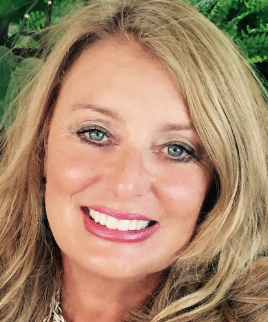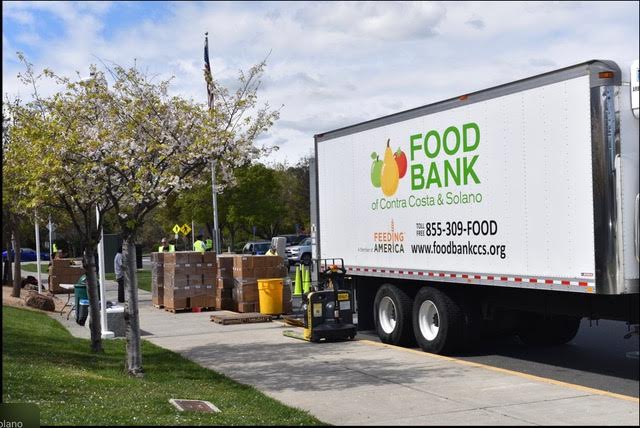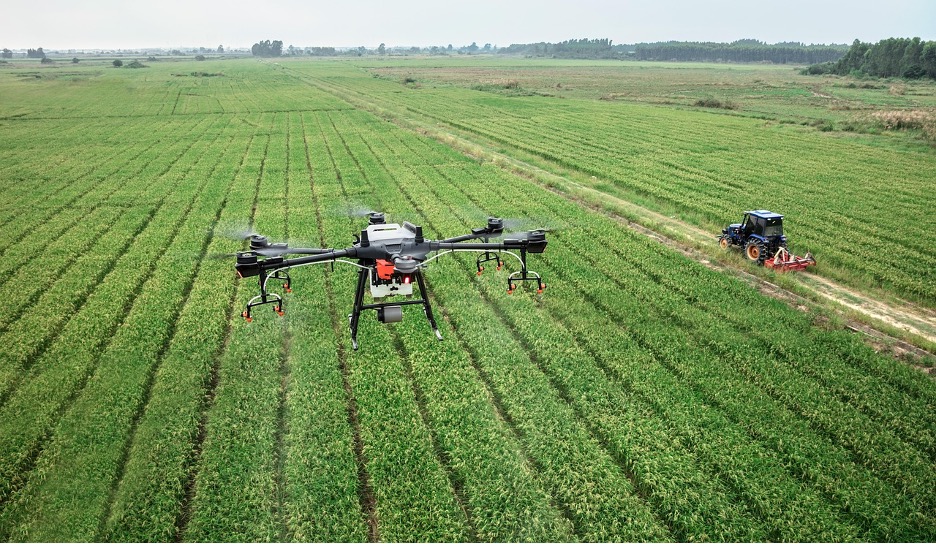Editor’s Note: This is the first in a series of stories reporting on the challenges nonprofit organizations in Contra Costa County face as changes in federal laws and policies go into effect.
The shelves at the Food Bank of Contra Costa and Solano are getting harder to keep stocked these days. In fact, nonprofits and programs across the country are feeling the pinch of higher prices linked to tariffs – a financial strain that could limit critical community services.
Under President Donald Trump’s 2025 trade policy, reciprocal tariffs as low as 15% – and as high as 50% for some countries – have or are expected to go into effect this year. American industries and organizations reliant on imported goods will be affected by these increases. This includes food banks and shelters that are expected to feel higher prices for essential supplies, as well as bulk groceries, medical items and hygiene products.
Additionally, funding cuts from the U.S. Department of Agriculture and the Supplemental Nutrition Assistance Program (SNAP, previously known as food stamps) are expected to impact food-based nonprofits, including those in Contra Costa County.
The Food Bank of Contra Costa and Solano works to provide essential and emergency food to those in need throughout the county. Rising food costs are affecting the Concord-based food bank’s ability to provide enough food for the community.
“As a part of the bill … that just recently passed, [SNAP] had the biggest cut in the history of the program. It’s going to really impact our community members,” said Jeremy Crittenden, a spokesperson at the Food Bank. “Most people on the program qualify for about $41, which if you’re buying groceries, it does not go very far anymore, and now that’s even being cut further. So, we’re expecting to see more of our community members utilize our services due to those cuts.”
Medicaid impacted as well
Crittenden added that there also are cuts to Medicaid, so community members who rely on programs like SNAP and Medicaid (Medi-Cal in California) are becoming more and more reliant on alternate services and food offerings.
“The unfortunate part of this will be that there’ll be less variety. There’ll be more onions, there’ll be more oranges, instead of the stuff that we were able to get before, like bok choy and broccoli,” Crittenden added. “Before, you were able to get a wider variety.”
There are close to 10,000 nonprofit and 501(c) organizations in Contra Costa County, according to TaxExemptWorld. Statewide, the National Council of Nonprofits reports that more than 144,000 registered nonprofits “feed, heal, shelter, educate, inspire, enlighten and nurture people of every age, gender, race and socioeconomic status.” Churches, schools, professional associations and foundations can also be included in the nonprofit category.
Cynthia Brian, founder and executive director at Be The Star You Are!, said the newly imposed tariffs will affect many people negatively. The Moraga-based children’s and women’s literacy nonprofit has worked both internationally and locally to promote literacy.
“We really believe in free trade, so that there is opportunity for people all around the world to get ahead,” Brian said. “Unfortunately, it is my opinion, and this isn’t just for our charity, but it is my opinion that the tariffs are going to hurt us, and it’s going to cost Americans a great bit of money every year.”
CNBC reports that 75% of food products imported into the United States face tariffs. The article also said that more than half of Americans are extremely stressed about grocery prices increasing, “making it the most commonly cited financial worry in a July poll from the Associated Press-NORC Center for Public Affairs Research.”

“I’m hoping that things will change and that it’ll go back to where it was because our world standing is important and what I feel is going to happen is that the tariffs are going to drive our allies to get other allies,” Brian said. “And America has always been a leader. So, I don’t think that tariffs are a good thing for us or for anyone around the world.”
Crittenden said that the Food Bank is working hard to adjust to new federal cuts and rising costs by resourcing food, while ensuring that the goods are still of high quality.
“Our operations team has done a fantastic job of finding better ways to source food at a cheaper option, and making sure that we continue to get food at the best price possible to be able to serve our neighbors,” he said. “Thankfully, we are mostly community funded, so we are in a unique position compared to a lot of other food banks. The cuts have impacted us, but we just found these government grants or found different ways to source food.”
These alternative options to assist the Food Bank – as well as the current political climate across the country – also have forced the nonprofit to address the challenge of making sure people know this service is there for them, regardless of their immigration status.
“There’s just a lot of fear in our community members, especially around our immigrant community, due to potential ICE and immigration services,” Crittenden said. “So, people are scared to sometimes come and get food and or sign up for programs that could help them. Even if they’re eligible, even if they’re here legally, they’re allowed to have the service.”
Keerthi Eraniyan is an 11th grader at California High School in San Ramon. This story was made possible by support from the Lesher Foundation, its Newsmakers speaker series, and the Bay City News Foundation. Stories are produced independently by the CCYJ news team.








